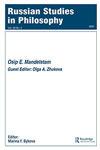从过去到未来:断裂与连续话语中的苏联与俄罗斯帝国
IF 0.1
4区 哲学
Q4 Arts and Humanities
引用次数: 0
摘要
摘要在俄罗斯帝国和苏联之间仍然高度政治化的断裂或延续问题中,延续的元素并不难找到,也不应该令人惊讶,因为一个新的国家出现在同一地理空间,并利用了从俄罗斯帝国继承的经济、智识和人口资源。与此同时,苏联与俄罗斯帝国的区别再大不过了。它拒绝了作为国有化沙皇帝国基础的社会政治项目的一些关键要素,并引入了全新的政治和社会原则来组织这个空间。特别是,布尔什维克有意推翻沙皇建立一个伟大的俄罗斯民族的努力,使其成为俄罗斯帝国民族政策的中心。直到20世纪末,后苏联时代的太空才有可能不可逆转地解体为单独的国有化国家。同时,现代后苏联俄罗斯核心的帝国主义性质允许我们说,帝国主义逻辑得以幸存。在这里,我们可以找到一个不可避免的连续性元素。我们在现代学术话语中以更新的形式对“连续性”和“断裂性”进行了研究,倾向于使用“经验细致入微”的工具来分析多重历史时间性。本文章由计算机程序翻译,如有差异,请以英文原文为准。
From Past to Future: The Soviet Union and the Russian Empire in Discourses of Rupture and Continuity
ABSTRACT In the still highly politicized question of rupture or continuity between the Russian Empire and the Soviet Union, elements of continuity are not hard to find, nor should this be a surprise, since a new state arose in the same geographical space and made use of the economic, intellectual, and demographic resources inherited from the Russian Empire. At the same time, the Soviet Union could not have been more different than the Russian Empire. It rejected a number of key elements of the sociopolitical project that underlay the nationalizing tsarist empire and introduced radically new political and social principles for organizing that space. In particular, the Bolsheviks purposefully engaged in dismantling the tsarist efforts to build a great ethnic-Russian nation to stand at the center of the Russian Empire’s nationalities policy. The irreversible disintegration of post-Soviet space into separate nationalizing states became possible only toward the end of the twentieth century. At the same time, the imperial nature of the modern post-Soviet Russian core permits us to say that the imperial logic has survived. This is where we can find an element of inescapable continuity. We present studies of “continuities” and “ruptures” in modern academic discourse and in an updated format, gravitating toward “empirically nuanced” tools for analyzing multiple historical temporalities.
求助全文
通过发布文献求助,成功后即可免费获取论文全文。
去求助
来源期刊

RUSSIAN STUDIES IN PHILOSOPHY
PHILOSOPHY-
CiteScore
0.10
自引率
0.00%
发文量
14
期刊介绍:
Russian Studies in Philosophy publishes thematic issues featuring selected scholarly papers from conferences and joint research projects as well as from the leading Russian-language journals in philosophy. Thematic coverage ranges over significant theoretical topics as well as topics in the history of philosophy, both European and Russian, including issues focused on institutions, schools, and figures such as Bakhtin, Fedorov, Leontev, Losev, Rozanov, Solovev, and Zinovev.
 求助内容:
求助内容: 应助结果提醒方式:
应助结果提醒方式:


